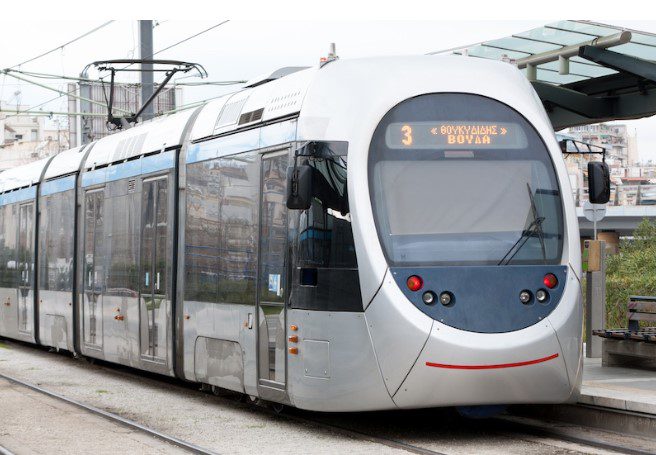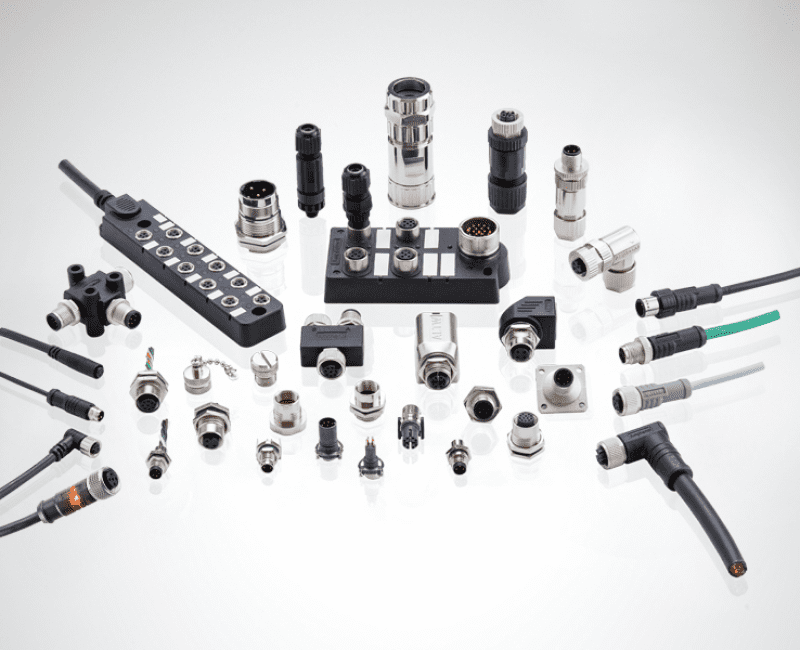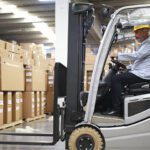Navigating the Roads with Fleet Management Technologies
Fleets have emerged as integral players in the rapidly evolving transportation landscape, shaping the movement of goods and people around the globe. New fleet management technologies offer more visibility and control of moving assets to create cost and logistics efficiencies.

From delivery services to public transportation systems, fleets of cars, vans, trucks, and unmanned aerial technologies, fleet management has become an integral part of today’s are mobility landscape. The rise of e-commerce and the imperative to reduce carbon emissions are among the challenges associated with managing fleets for efficient logistics and operational cost savings.
New technologies are revolutionizing fleet management. From advanced telematics and GPS tracking to predictive analytics and autonomous vehicles, digital solutions can optimize fleet operations, enhance safety, and improve sustainability. Fleet managers can navigate the complexities of this evolving landscape with precision and foresight now, and by integrating fleets with smart city technologies, will see even greater efficiencies in the future.
Tracking and fleet control
The transportation and automotive industries have been transformed by 4G and 5G technologies. Tracking and fleet managment are now possible in real time using these high-speed connectivity technologies. With 5G, devices that store location, speed, and mileage data can use satellite tracking to provide logistics data to fleet managers and end customers. Transportation applications enabled by high-speed communication networks include real time diagnostic information such as cabin and motor temperature, fuel use and oil levels, driver behaviors and location, and cargo delivery times. This data allows fleet managers to effectively manage operating costs.

Interconnect solutions for the transportation industry need robust designs with secure mating in different configurations and sizes. Amphenol LTW’s Ceres Series connectors can withstand harsh environments and a wide range of operating temperatures. They are available in 2A to 20A with 2 to 31 pin configurations and up to IP68 mated or unmated waterproof.
Smart city integration
Efficient transportation technologies are being implemented in cities around the world. In these smart cities, mobility solutions enable cities to adjust traffic signal timing to minimize congestion, reduce the risk of collisions, and improve air quality through reductions in carbon emissions.
New AI-powered hybrid video and radar detection systems with high resolution differentiate between vehicles, bicyclists, and pedestrians and provide the real time data needed to analyze and to control traffic signal timing. For example, the detection radar and camera sense the approach of a cyclist. Through AI, the cloud-based detection system will extend the red light and make sure the cyclist passes through the intersection before the light turns to green. The system monitors, visualizes, and optimizes mobility infrastructure for safety and efficiency.

Amphenol LTW provides M series sensor connectors with different sizes, pin counts, and various codes.
A global leader in smart mobility infrastructure systems cooperates with Amphenol LTW to build AI-powered, smart sensor detection cameras. These systems must work outdoors in all conditions. Amphenol LTW implemented M series sensor connectors for these systems, which include A-code receptacles with customized cable assemblies, double-ended cable, and IPX8 unmated waterproofing that provides functionality in harsh weather conditions. Amphenol LTW also designed customized cable assemblies according to customer’s requirement that saves time and money.
Managing trucks and containers
Trucks and containers are distinct entities within fleet management, each serving unique roles. Trucks, typically operated by drivers, transport goods over roads, offering flexibility and accessibility. Containers, on the other hand, are standardized cargo units designed for intermodal transportation via trucks, trains, or ships. Fleet managers can oversee the coordination of trucks and containers with the help of a smart fleet management platform. These devices transmit data from the truck or container to optimize routes, schedules, and maintenance to ensure efficient and reliable delivery of goods while minimizing costs and maximizing resource utilization.

Amphenol LTW’s Smart Fleet Management Integrated Platform of Trucks and Containers works with a transponder unit that are attached to a truck or container, and thus needs to endure all kinds of harsh environment conditions, as do the connectors within the unit. In a smart fleet management platform, functions such as driver safety, GPS tracking, maintenance, fuel monitoring, and dispatch and workflow are all integrated into one platform. This enables managers to oversee the flow of both components of this transportation scenario on a global basis, tracking goods from point of origin to destination across multiple modes. The unit must be designed to perform perfectly under the many different harsh environments cargo will experience along its route.

Amphenol LTW’s D-Sub Connectors with IP68 waterproof rating enable the Smart Fleet Management to perform in harsh environment conditions. Available in both standard and high density, with in-receptacle, overmolded with cable, and field installable versions available. The contacts are gold-plated, with 9 to 78 contacts and nominal current of 5A (Standard) and 2A (High Density), with operating voltage of 125V (DC). Standard D-Sub connectors can endure temperatures from -40° C to 105° C and salt spray for 8 hours when the connectors are mated. Customized D-Subs are available with enhanced pins to face the salt-spray conditions of salt spray that shipping containers endure.
As integrated transportation technologies and fleet management continue to evolve, innovative solutions address the complexities of modern logistics. These solutions help fleets enhance operational efficiency and drive sustainability and safety in transportation systems worldwide.
Visit Amphenol LTW to learn more about smart solutions for transportation and logistics.
Like this article? Check out our other Sensors and Connected Vehicles articles, our Transportation Market Page, and our 2024 Article Archives.
Subscribe to our weekly e-newsletters, follow us on LinkedIn, Twitter, and Facebook, and check out our eBook archives for more applicable, expert-informed connectivity content.





